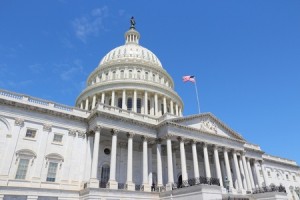Congress introduces a bill directly impacting franchises
 Have you heard? A U.S. House committee has introduced new legislation aiming to define what it means to be a “joint employer.” The legislation states that an employer must “directly, actually and immediately” exercise significant control over the business.
Have you heard? A U.S. House committee has introduced new legislation aiming to define what it means to be a “joint employer.” The legislation states that an employer must “directly, actually and immediately” exercise significant control over the business.
In this case, the business is defined as “the primary elements of employment.” This is designed to clarify who is liable for a violation of workers’ rights.
The bill, called the Save Local Business Act, would essentially countermand the 2015 Browning-Ferris Industries case where the National Labor Relations Board (NLRB) expanded the joint labor standard to include anyone who has even “indirect” control.
If the bill becomes law, it would be entered as an update to the National Labor Relations Act and the Fair Labor Standards Act.
In the meantime, the International Franchise Association has come out in support of the bill, stating that it would add clarity to franchises across the country when it comes to the unlimited joint employer setup.
Still, there are two sides to every story, and supporters of the NLRB’s efforts maintain that when a franchisor can’t be held liable for a workplace violation, it creates what they call a “fissured economy,” where the larger and more powerful entity aren’t responsible for violations even if they profit from the work being done in said workplaces.
One thing quite notable about this bill is that it had bipartisan support. Of course, there’s no word on how the bill will fair as it passes through Congress and does or does not land on the president’s desk.


